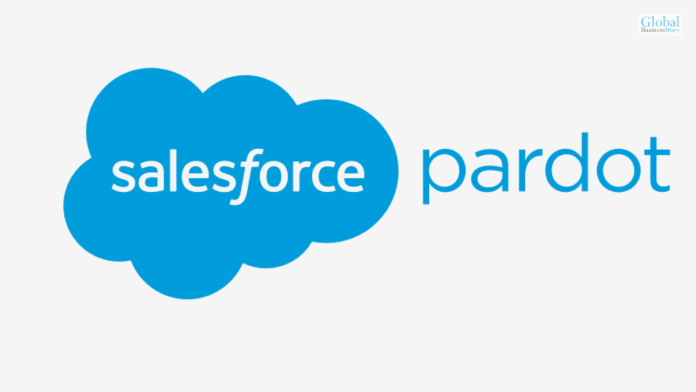Intrapreneurship – Definition, Importance, Duties, And Responsibilities

The word Intrapreneur consists of two words – Intra (within) and Entrepreneur. Intrapreneurship refers to a situation where employees within a company use their entrepreneurial skills to complete projects and tasks. These employees use their creativity, leadership, intuition and also take risks in their job roles to complete projects. The concept is relatively recent and is changing the way organizations manage business and innovation.
In this article, you will learn in general what Intrapreneurship means and what its importance is in businesses of now. We will discuss here some of the major impacts of intrapreneurship on business. Next up, we will provide you with the major characteristics, as well as the duties and responsibilities of an intrapreneur. Hence, to learn more about intrapreneurship read on through to the end of the article.
What Is Intrapreneurship?

According to Investopedia,
“The term intrapreneurship refers to a system that allows an employee to act like an entrepreneur within a company or other organization. Intrapreneurs are self-motivated, proactive, and action-oriented people who take the initiative to pursue an innovative product or service.”
Although a new concept in the world of business, intrapreneurship is on the verge of changing the ways in which companies manage business and innovation. With time, intrapreneurs are becoming the top innovators within organizations. Hence, companies are tasking their intrapreneurs to develop new ideas, products, systems, and services within the existing organization framework.
The good thing about intrapreneurship is that intrapreneurs know that they do not need to bear personal costs when they fail. In most cases, the organization absorbs the losses (if any) that come from failure. On the contrary, if there is a success, the company is the one that gets the most gains in the end.
Read More: Importance Of Entrepreneurship: Types, Features & Benefits
What Is The Importance Of Intrapreneurship?

An intrapreneurship is a situation when a business allows its employees to own up and become entrepreneurs within the organization. This, in turn, benefits the company as well as the employee. Furthermore, the employee also gets the chance and the freedom to experiment with their work.
1. Employees Get The Autonomy
According to Indeed.com,
“Intrapreneurship is usually an unofficial title. Though intrapreneurs have autonomy over the projects for which they’re responsible, they typically have other duties they need to perform under their official role in the company.”
Furthermore, there are many other companies that encourage their employees to engage in some form of intrapreneurship in any way. Companies allow their employees to devote a part of their time to work on projects in an entrepreneurial way which can benefit the organization.
Apart from that, once there is a culture of intrapreneurship in an organization, it can help to foster autonomy and independence. In most cases, the best resolution can be achieved easily. For example, in an intrapreneurship, the company might require an employee to perform research and recommend a better solution to workflow to the brand of the company.
2. More Innovation And Growth For The Company
With intrapreneurship, the company has more entrepreneurs within the organization. However, employers can recognize their employees that are capable of becoming intrapreneurs for the company. They can also find those employees that show their intrapreneurial spirit, which can be detrimental to the company.
Employers can benefit from intrapreneurship since a win can lead to the success of the department and the company as a whole. If employers encourage these employees to work more on innovation, growth, and research, they can benefit a lot. If employers do not promote their employees, they might lose these potential intrapreneurs to other companies.
A Few Characteristics Of An Intrapreneur
It is important to learn some of the major characteristics of an intrapreneur. According to Investopedia,
“Identifying intrapreneurs can sometimes be difficult. These employees are generally self-starters who are both ambitious and goal-oriented. They are often able to solve problems on their own and come up with ideas that lead to process improvements.”
The following are some of the major characteristics of intrapreneurs that you need to learn:
- They are not afraid of risks and are ready to risk time or finances themselves.
- They love to share the reward of successful intrapreneurial projects with the corporation and other intrapreneurs equitably and in a defined manner.
- They are innovative and always have the capability and drive to build new akin to capital.
- With their work and efforts, they earn independence and autonomy from their company/ employers.
- Within the corporation they work for, intrapreneurs become their own “venture capitalist.”
One of the major things about intrapreneurs is that they are not afraid of taking risks, as they can take responsibility for multiple tasks. To look for new challenges, some intrapreneurs can even take on some projects that they are not comfortable with in general.
What Are The Major Duties And Responsibilities Of The Intrapreneur?

The role, duties, and responsibilities of intrapreneurs can vary a lot based on the company they are working for and the industry they are in. However, there are a few things that are found common among intrapreneurs. The following are some of the common duties and responsibilities of an intrapreneur:
- Intrapreneurs know how to bring new ideas and generate new ones based on the situation of the company. They also have a good knowledge of the services, products, and services of the company.
- They innovate and manage innovation by overseeing its lifecycle, from its conception to implementation.
- Intrapreneurs with management capability often lead cross-functional teams and manage projects by ensuring their successful completion.
- They are problem solvers and identify and bring varied solutions to the complex problems of the business.
- They are risk-friendly and are not afraid to take calculated risks with proper assessment of the situation.
Read More: Risk In Entrepreneurship : What Risks Do An Entrepreneur Face?
Wrapping Up
Hence, you can see from this article that intrapreneurship is nothing but a way in which a business allows its employees to act like entrepreneurs within the organization. Hence, just like entrepreneurs, intrapreneurs need to be action-oriented, proactive, self-motivated, risk-friendly, innovative, and more.
Many experts consider intrapreneurship as a step towards entrepreneurship. Intrapreneurs can develop their own business by using what they have learned within the organization. How do you think employees benefit from intrapreneurship? Share your thoughts about it in the comments section below.
Read Also:













